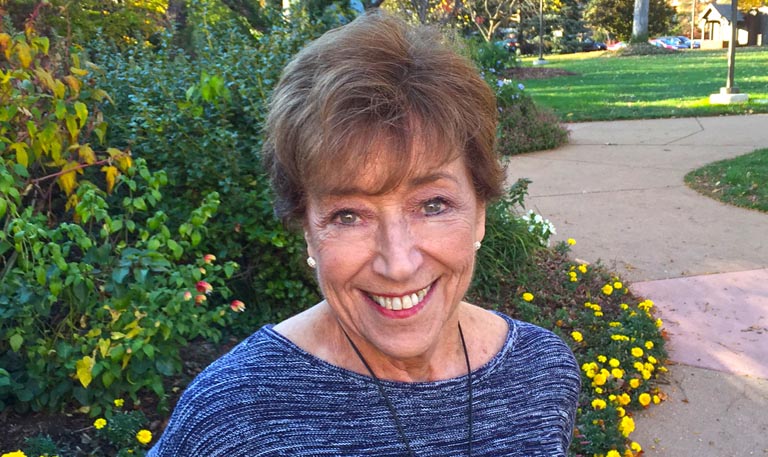BY BOBBI LINKEMER
I never really expected to retire. It just wasn’t something I looked forward to or planned for. I thought I would keep on working forever, or at least until I fell off my chair. Eventually, I developed three criteria for when I would stop working: when there was no work, when I could no longer do the work, or when I no longer wanted to work.
All three conditions occurred simultaneously—a perfect storm—and that is when I (euphemistically) took down the shingle. Dissolving my one-person business was a rather understated process. All I had to do was close my bank accounts and take down my website. After 30 years, I thought there should be a little more drama associated with this major life transition. Perhaps I should have sent out a news release or, at the very least, a personal note to my clients. But I did neither of those things. I simply stopped what I had been doing and cleaned out my files. It was a bit anticlimactic to say the least.
Racking up Points on the Stress Scale
While I was contemplating what to do next, COVID hit, and my world flipped on its head. Suddenly, I was stuck at home in greatly changed circumstances. Not only had I closed my business, but I had also sold my condo and moved across the country to live with one of my daughters. After 35 years of living alone, I was suddenly occupying space with two other people and two dogs in a city where I knew no one.
The world became a place we didn’t recognize with a new vocabulary to describe it. Words like quarantine, PPE, ventilators, mask mandates, virtual schooling, vaccines, daily briefings, misinformation, disinformation, rising cases, rising deaths, food-delivery apps, social distancing, and hand sanitizing entered the lexicon.
People found their own methods of coping, some healthy and productive, some not so much. As we all struggled to cope with COVID, I was also trying to adapt to being “retired.” I didn’t feel retired. As I unpacked my computer and set up my tiny office space in my new home, I immediately got back to work. No longer having to deal with clients and their books, I began to write my own. The subject was aging, which I was facing firsthand. I had questions, so I looked for answers. I researched, reviewed my own experience, interviewed other older people and experts, and sat at the computer for hours every day. And so passed 2020.
How to Get Through a Pandemic
The pandemic continued, and so did I. I finished the book, wrote a proposal, found a publisher, began marketing, and made it through 2021. By 2022, things had slowed down a bit. By then, COVID had morphed into the Delta Variant, which gave way to Omicron. The death count was up and down, with older people and the unvaccinated especially at risk. Vaccines became available, which half the country took advantage of, while the other half did not. The first half fared fairly well; the second half did not. In the meantime, I turned 85.
Identity: What I Do vs. Who I Am
For my entire career, I have defined myself by what I do, rather than who I am. For years, I had been a book coach, ghostwriter, and editor. When I stopped being those things, I felt adrift. True, the basis of all those labels was being a writer, and that has not changed. So, I guess the part of me that strings words together to create prose has not really “retired.”
Being 85 will be quite temporary. Next year I will be 86, then 87, each number signifying a more advanced age. Assuming I live into my 90s (a bold assumption), the word old will take on new meaning with each passing year. There is no way to get around that reality. Like every other species on this planet, we are born, we stumble through life—each in our unique way—and we die.
Strangely, it is not dying that troubles me; it is the slow fade of my physical and mental vitality—if I am fortunate enough to live into my later years—or worse yet, succumbing to the speedier decline brought about by illness or an accident.
Choosing to go with the flow
Millions of people have grown old since the beginning of time. Yet, for each of us, aging is a singular experience. How well we handle the inevitable changes that come with this stage of life is a choice—a choice we have the power to make—I have the power to make. I can choose to be miserable about each passing year and physical change, or I can adapt to the natural flow of life. That seems to be the only sensible approach to living well now and for as long as I am here.
Bobbi Linkemer has been a professional writer for more than 50 years. She has written 28 books, coached many aspiring authors on how to write and publish their books, developed and taught writing courses, and written on a wide array of subjects for print and electronic media. Her most recent book is How to Age with Grace: Living Your Best Life in Your 70s, 80s, and Beyond.


